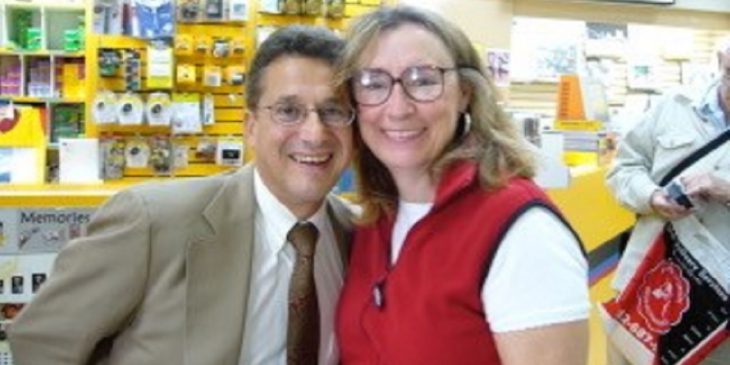In October 2015, Scott Harrison’s wife, Barbara Harrison, was diagnosed with stage 1, level 3 uterine cancer. Her cancer was aggressive, leading to a hysterectomy in November of the same year.
“There is no road map or instruction book,” Scott said when asked about his experience as a caregiver. “Everyone needs help for different things. Everyone has different strengths and weaknesses.”
Barbara began her cancer treatments at a local hospital in State College, Pennsylvania. When she felt she had exhausted her treatments there, she visited medical centers in Hershey and Philadelphia, eventually traveling to Pittsburgh to enroll in a clinical trial at UPMC Magee-Womens Hospital. It was August 2017, and she had been undergoing cancer treatments for two years with repeated recurrences.
By January 2018, Barbara had gotten worse and was receiving morphine every two hours for her pain. As happy as they were with the care Barbara received at UPMC Magee, the clinical trial didn’t work. Fear and anxiety set in with Barbara, and Scott found himself feeling overwhelmed — struggling to tend to her round-the-clock needs while working, sleeping and caring for himself.
This is not an uncommon story to the more than 35 researchers and clinicians affiliated with the recently launched Center for Caregiving Research, Education and Policy at the University of Pittsburgh Health Policy Institute. This new center aims to increase awareness about the important role of family caregivers in the health care system, conduct priority research in family caregiving and educate providers and family members to ensure that caregivers can effectively care for themselves and their loved ones.
It’s the kind of resource Scott believes is “critical and necessary” for caregivers looking to care for themselves and to provide better care for their loved ones. He is sharing his story of caregiving in the hope it will guide initiatives like the center’s.
For the first two years of Barbara’s cancer treatments, Scott was comfortable transporting her to and from appointments, dealing with the after-effects of chemotherapy and providing moral support. When the caregiving began to require constant attention, it became both physically and mentally difficult for Scott to manage.
Scott said he felt sidelined in many ways when trying to be involved in Barbara’s treatments. He found it difficult to get solid answers to his questions, and – while he has abundant praise for Barbara’s doctors – he believed some of them were understating the cancer’s severity with good intentions of keeping them hopeful. However, this was not necessarily what he needed when trying to map out the plan for Barbra’s future.
During the last four weeks of Barbara’s life, she was too weak to travel to the hospital for care. Scott was left alone to care for her at home. He said his saving grace was a website called “Sign-up Genius” that a cancer patient in Boston recommended to him. This site allowed friends to sign-up for shifts during the day where they would care for Barbara and sit at her bedside.
The last week of Barbara’s life was spent in hospice care.
Looking back on the situation, Scott said he wishes he would have received a clearer picture of Barbara’s diagnosis and had better understood what to expect in terms of symptoms and how long she had to fight. He wishes he had known what to have in place before encountering the intense care Barbara required at the end.
“If they can keep you alive for three to five years and that’s considered successful, then someone needs to tell you that,” Scott said. “Hospitals should try to assess caregiver needs individually to determine what they need, and their level of comfort navigating the medical system and providing care to their loved one. They should make a proactive attempt to help caregivers and anticipate the types of questions caregivers will have.”
As far as advice for others who may find themselves in a situation similar to his, Scott encourages people to not be afraid to ask questions.
“Some people may not always know what to ask, but nobody who hasn’t had or dealt with cancer is an expert on cancer,” he said. “Find an advocate to help you understand medical reports and the language to explain the situation to you. Whether you’re struggling with family counseling, money management or scientific literature, find help.”
UPMC now incorporates caregivers into discharge plans for all patients who will require additional care at home. At UPMC Magee, input from Scott and other families has led to collaboration with the University of Pittsburgh School of Nursing to develop a family support program within the gynecologic oncology clinic. Scott is a key member of this development team.
Caregivers looking for resources to better understand their situation can visit the Center for Caregiving Research, Education and Policy.









